Kentro Connection
Faith-based peace in an age of tumult
By Grace Hercyk – Mennonite Central Committee
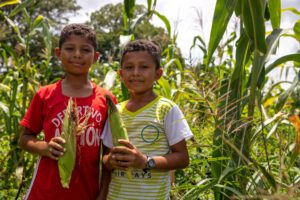
Mennonite Central Committee (MCC) is a worldwide ministry of Anabaptist Christian churches that works at relief, development and peace in the name of Christ. Peace might sound like a peculiar thing for a humanitarian and development organization to prioritize, particularly for a faith-based one. What does it mean to make this abstract (albeit nice sounding) virtue a reality in practice? Is it possible that peace is more than a feel-good sentiment on a Christmas card or something to wish for when blowing out your birthday candles?
At MCC, we understand peace in several ways. Within our organization, it’s a dynamic and evolving conversation that started more than 100 years ago and continues today. By sharing MCC’s journey, we hope it will prompt other Christian organizations to explore what peace means to them and how to weave peace into their own work.
MCC embraces peace in four ways: Peace as a theological framework. Peace as a lens through which we do our work. Peace as a discipline and set of concrete actions. Peace as a critical, ever-evolving part of who we are as an Anabaptist Christian ministry.

Peace as a theological framework
MCC was founded in 1920 as the relief and development arm of the Anabaptist church, striving to share God’s love for all. With origins in the “historic peace church,” peace is essential to how we understand the life of Jesus, our calling as Christians and MCC’s identity today. Though not a theological organization, several distinctly Anabaptist theological threads are apparent in our work. These are: community, reconciliation, nonviolence and the life of Christ.
Starting with community, Anabaptism has long believed that faith is best when experienced and practiced in community, rather than seeing faith as a solely individual practice. This focus on community carries through to MCC, where we strongly value relationships and healthy communities.
As our mission statement affirms, “MCC envisions communities worldwide in right relationship with God, one another and creation.” Inspired by the early church in Acts 2 and our Anabaptist heritage, we are motivated to build resilient communities where people’s basic needs are met, and each person lives in dignity and harmony. We often choose to work at the community level, where local partnerships are essential.
Secondly, MCC seeks opportunities to build reconciliation within those relationships and communities (2 Corinthians 5:18, Colossians 1:19-20). We aspire to serve as ambassadors of Christ’s ministry of reconciliation in the world and to see communities live in peace.
Closely tied to this is the theological idea of shalom. We believe that to experience shalom, communities must be free from physical violence (i.e., war, gun violence, gang violence, etc.), while also experiencing mutual and positive relationships situated within a broader context of equity and justice. Across our relief, development and peacebuilding work, we prioritize bringing diverse people together so new bonds can be built across differences, laying the groundwork for reconciliation.
Third, in all our work, we aim to practice nonviolence (2 Corinthians 10:3-4; Matthew 5:9). Anabaptists are perhaps most famous for their pacifism, now more commonly known as nonviolence. Practically, this means we, at MCC, do not believe the military has a role in conflict resolution or humanitarian action, and we advocate against military intervention. In all our programming, we aim to avoid the perception that we support weapons or violence for any purpose. MCC has a long history of promoting conscientious objection and alternatives to military service.
Finally, we are also inspired by the life of Christ. Anabaptists have traditionally centred Christ’s lived example as a model for our own lives, with particular emphasis on Christ’s life of service, humility, nonviolence, care for the poor and the oppressed, and willingness to speak truth to power when required. MCC also finds this model critical to our work.
These Anabaptist theological themes run through all our humanitarian, development and peacebuilding work and are exemplified in our operating principles.
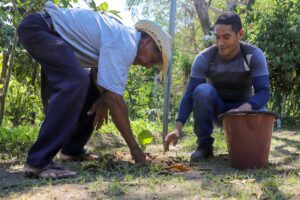
Peace as a lens
Another set of values that informs our work is “Do No Harm” and “Conflict Sensitivity.” Practically, we understand that activities such as providing hygiene kits, supporting mental health services, hosting restorative justice circles or running peace camps do not happen in isolation. Programming happens within dynamic and complex communities, with existing actors and power dynamics. Despite our good intentions, entering uncritically into a community has a significant risk of creating harm.
Therefore, we work hard to understand each context before we act. We take actions such as community mapping or conflict analysis to understand the key groups at play, source materials locally when possible, require ethical behaviour by staff and volunteers, provide assistance in the language participants prefer and offer help to people regardless of their background. We also rely heavily on local partners (often church partners) from those communities who can best understand local dynamics.
But beyond this, we believe if we are careful and conflict-sensitive in how we work, we might even prompt unintended peace results. For example, while waiting in line for food parcels after a disaster, participants may have a conversation with someone else in line from another faith. Or when farmers come together on a plot of land to learn climate-resilient agricultural practices, participants may experience the location as safe and neutral (after perhaps experiencing conflict with their neighbours due to scarce water resources), hopefully stirring positive sentiments within the group. Or when young adults go through a vocational training program or attend a peace camp, their instructor might be from a different cultural background, providing new role models and different types of leadership. Through multiple, small actions, MCC aims to make choices that challenge the status quo and build experiences that can positively connect people.
There are many steps practitioners can take to be conflict sensitive. Many resources exist across the humanitarian, development and peacebuilding fields. But it starts with first understanding the context, then considering what could connect people and foster reconciliation. As MCC leans into multisectoral and intersectional relief, development and peacebuilding work, these practices are foundational.
Peace as a discipline
MCC also practices “peacebuilding.” Peacebuilding is a set of concrete actions taken to address the root causes of conflict, violence or injustice. This can mean mediating a conflict between groups (ranging from family disputes to wars between nation-states), advocating for just public policies (i.e., adequate public resources for new immigrants, expanding the rights of marginalized people, etc.), or working toward reconciliation for past harms (i.e., starting at the community level, all the way to national truth and reconciliation processes).
Peacebuilding can happen on the interpersonal, community, regional or nation-state levels. There are endless tools and approaches that can be employed to pursue peace and justice. We believe that peace can be actively built, much like a bridge is constructed over a river, piece by piece from both sides and meeting in the middle. We believe passionately that peace is active and robust.
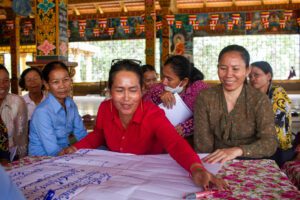
MCC supports local organizations and churches around the world, working to build peace and justice in their communities through concrete actions. Partners use arts and culture to foster dialogue among people across differences and build new relationships; connect underprivileged groups with social services; run restorative justice projects such as Circles of Support and Accountability that assist individuals with reintegration following incarceration; and provide communities with basic trauma and stress coping skills after disasters through projects like equine therapy for children in Ukraine. Each of these projects provides concrete skills or services, helping people live in right relationship with their neighbours.
MCC embraces peacebuilding because it fits within our values and Christian understanding. But we also believe it’s common sense. By building peace, we can help create the foundations for societies to constructively manage differences, respond to challenges and grow their societies and economies in a way that prevents future violent conflict.
We also believe that when there are opportunities to combine peacebuilding programming with development programming, this can result in uniquely reinforcing outcomes that reduce both poverty and violence. In the end, peace is an essential ingredient for effective and sustainable relief and development work.
It’s complicated
MCC has been shaped by the thousands of people who care about this organization: partners, project participants, supporters, staff, volunteers and stakeholders. We live within the complexity of exemplifying peace values while acknowledging that peace means different things to different people. There are varying perspectives around what counts as “violence,” how and when to engage government, the appropriate use of sanctions, and much more. MCC lives in constant dialogue with the people who care about this organization and feel deeply about living into peace.
We also acknowledge that this is hard. As 2023 draws to a close, it truly feels like an unprecedented era of chaos and violence. We see weakening institutions, fragile democracies and countless coups, all exacerbated by the impacts of climate change. There are no easy answers to the conflicts in Ukraine or Palestine and Israel, the forgotten violence in Myanmar or Burkina Faso, or the whispers of ethnic cleansing in Sudan. We can palpably feel the rising polarization at home and abroad. We struggle with the legacies of residential schooling and yearn for justice and reconciliation. As humanitarians, peacebuilders and people of faith, this era feels uniquely dispiriting. There are no easy answers, and the tools at our disposal feel utterly inadequate.
But we keep pressing forward. As Anabaptists, pursuing God’s ministry of reconciliation is in our nature. As people of faith, we know we must faithfully and patiently wait on God. We are familiar with 40 days or 40 years in the wilderness. We know change is a process, both within ourselves and in our communities. That doesn’t mean there aren’t moments of despair, and we relate closely with the prophets crying in the wilderness. But we continue to believe that every right relationship and every nonviolent action, no matter how small, is a way to be an ambassador of God’s peaceful kingdom on earth.
Summary
Reflecting on your own workplace, what could peace mean for your work? Are there peace values in your theological heritage on which to build? Do you understand the social and power landscape where you are working? What is already connecting people in your context? What would peacebuilding look like in your development work?
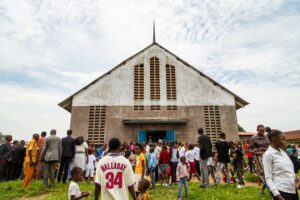
From small engagements with colleagues to large-scale processes of designing a humanitarian intervention in another country, we are all capable of making intentional choices that build peace. We can make choices that avoid harm, build resilience and sustain our humanitarian and development work. As you build that bridge of peace, create points to reflect and make necessary changes as you go.
We can all contribute to God’s peaceable kingdom by connecting with our peace theologies, actively living according to our values, exploring tools to help promote and foster reconciliation, and building connections through conflict sensitivity.
Because, for MCC, peace is truly more than a wish. It’s our work.
Grace Hercyk is MCC’s Peacebuilding Coordinator supporting Middle East, Latin and South America and Asia programming since 2018. She is based in Philadelphia, Pennsylvania, where she lives with her spouse and son. Grace is a member of West Philadelphia Mennonite Fellowship.

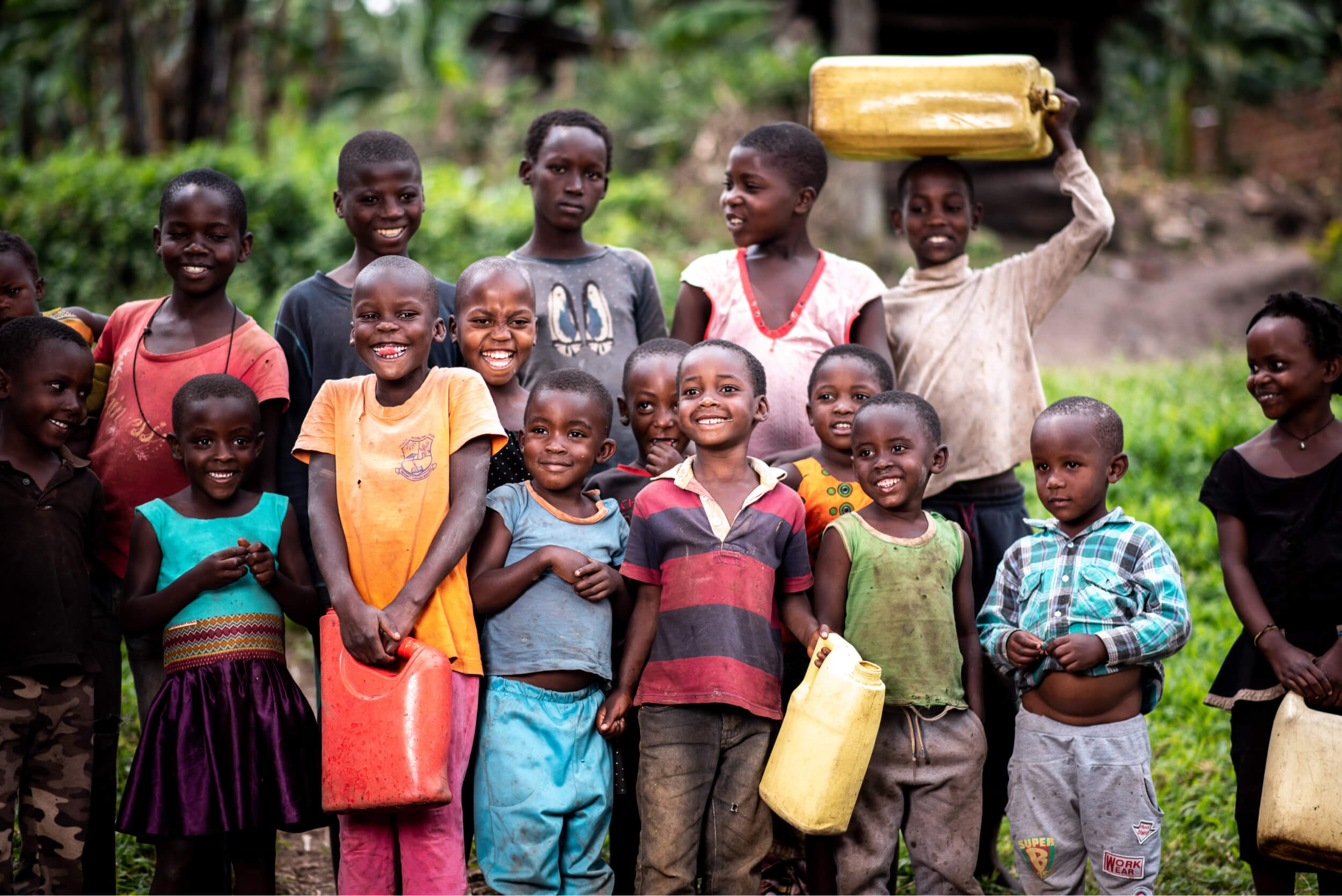
Collaboration is at the center
Organizations can’t fight poverty on their own. Get connected. We are stronger together.